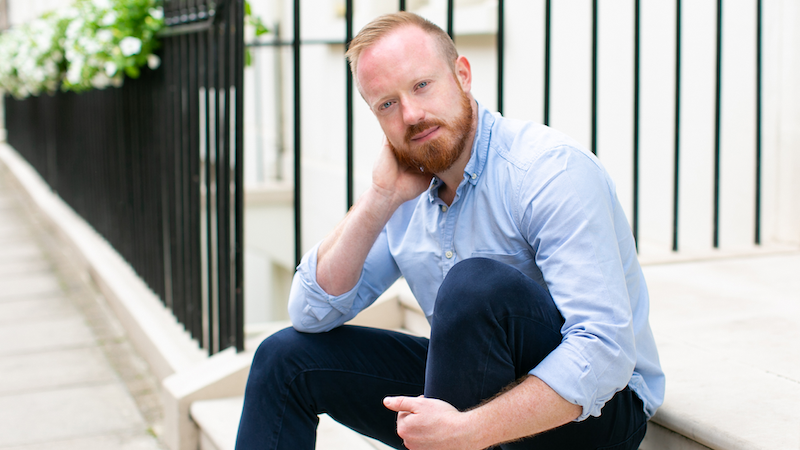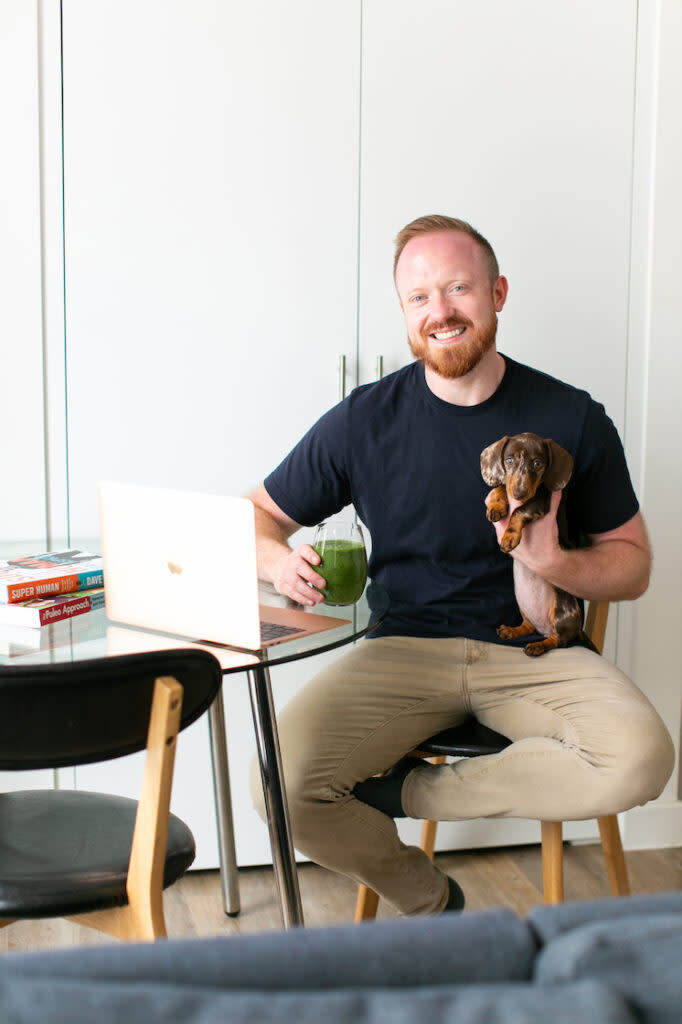‘Pride can bring feelings of inadequacy and exclusion – but kindness can alleviate the burden’

Pride is a celebration of love, acceptance, and unity within the LGBTQ+ community. However, as joyous as these events are, they can also bring about feelings of inadequacy and exclusion for some. These feelings have become more intense due to the continuous threats to LGBTQ+ rights around the world, particularly with regard to marginalised groups.
For some, pride can consequently be a turbulent period marked by a heightened sense of vulnerability, overwhelm, and overthinking. Personally, attending Pride events has often stirred up old wounds for me. Growing up, I was constantly tormented for my appearance, which deeply affected my self-esteem. The bullying I endured in school made me feel unworthy and invisible. This relentless negativity carved a deep-seated sense of inadequacy in me, which later manifested as body dysmorphia. While the festivities are exciting, they are often overshadowed by anxiety and self-doubt, making the experience bittersweet.
One tool to help alleviate some of the burden that comes with Pride is kindness. Practising kindness during Pride not only uplifts those who receive it but also enriches the mental and emotional well-being of those who give it. In the spirit of Pride, a time dedicated to love and unity, embracing acts of kindness can transform the experience into a more inclusive and supportive celebration.

An often overlooked but equally important aspect of practising kindness is its ripple effect. When you perform an act of kindness, it not only benefits the immediate recipient but also inspires others to act kindly. This chain reaction can create a more supportive and inclusive community atmosphere during Pride.
Kindness is a powerful tool for fostering community, improving mental health, and embodying the true essence of Pride. Whether through volunteering, simple acts of kindness, or self-compassion, embracing kindness can transform our Pride experience.
The dual impact of kindness
Acts of kindness have a profound effect not only on those who receive them but also on those who perform them. Research consistently shows that helping others can significantly enhance one’s mental and emotional health, reducing stress and increasing overall happiness. During Pride, a period filled with heightened emotions and vibrant celebrations, the benefits of practising kindness are magnified.
Volunteering and charitable acts
One of the most impactful ways to practise kindness during Pride is by volunteering with charities dedicated to supporting the LGBTQ+ community. The organisations listed below offer numerous opportunities to get involved. Volunteering can range from providing mental health support to young LGBTQ+ individuals, to helping with fundraising, or organising events and campaigns. These acts of service not only benefit the community but also create a sense of purpose and fulfilment for the volunteers.

Simple acts of kindness
Kindness doesn’t always require a grand gesture or financial resources. Simple acts such as being more accepting of others, being compassionate, showing gratitude, providing a listening ear, helping someone in need or even checking in on a friend can make a significant difference. These small actions can help to create an atmosphere of acceptance and love.
Being kind to ourselves
It’s crucial to remember the importance of self-kindness. While being hard on yourself may have helped you in past situations, consider whether it’s what you need right now. Many of us choose to struggle in silence rather than share our feelings with others. It’s vital to check in with yourself and take the necessary time for self-care. If the festivities during Pride become overwhelming, listen to yourself and take a break. Exploring mindfulness practices such as journaling or guided meditations can be useful tools to help manage your well-being and support being kind to yourself. Personally, I have found that practising self-compassion, accepting and acknowledging my own struggles with body dysmorphia and low self-esteem has been a critical part of my healing journey. It’s important to remember that we all have our battles, and being kind to ourselves is a powerful step towards recovery.
Daniel O’Shaughnessy is an award-winning Functional Medicine Nutritionist, coach, and author of Naked Nutrition, available to buy here.
For more information, visit DanieloShaughnessy.com.
Get involved – charities that help LGBTQ people
MindOut is a mental health service run by and for LGBTQ+ people.
Just Like Us aims to empower LGBTQ+ young people by providing educational resources and support.
LGBT Foundation provides a wide range of support services, including health advice, advocacy, and community programs.
Stonewall campaigns for the equality of LGBTQ+ people across Britain and abroad.
Albert Kennedy Trust supports LGBTQ+ young people who are homeless or living in hostile environments.
Switchboard LGBT+ Helpline is a switchboard that provides a safe space for anyone to discuss anything, including sexuality, gender identity, sexual health, and emotional well-being.
Mermaids supports transgender, nonbinary, and gender-diverse children and their families.
The Terrence Higgins Trust (THT) is a leading HIV and sexual health charity in the UK. It focuses on promoting sexual health, supporting those living with HIV, and eradicating stigma associated with HIV and sexual health.
The post ‘Pride can bring feelings of inadequacy and exclusion – but kindness can alleviate the burden’ appeared first on Attitude.


